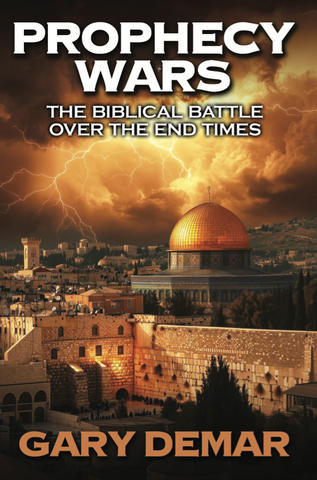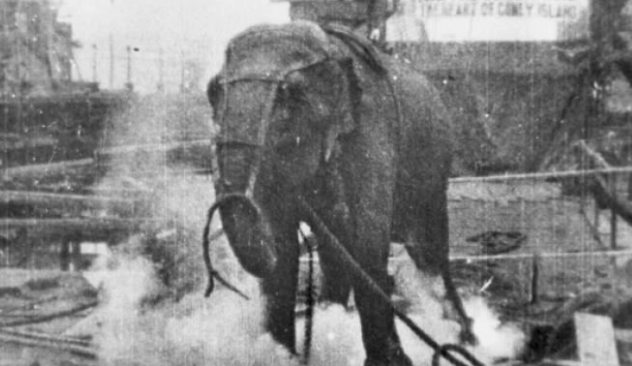During our discussion about eschatology, the topic of animal death and resurrection came up. Doug Wilson believes there was “entropy” before the fall. This would include death. He stated the following in his article “Full Preterism and the Death Problem.”
What was the nature of perfection in the Garden of Eden? What did an unfallen world look like?
Too many Christians have the idea that a world without corruption would have to be a world made out of some kind of rubberoid plastic. Either that, or stainless steel. The idea is that a perfect world would necessarily have no entropy. Entropy is what happens when you go from an ordered state to a disordered state.
But we actually know that there had to have been entropy in the Garden before the Fall. Adam and Eve were told that they could eat from any tree in the Garden but one (Gen. 2:16-17). And when they did so, their teeth would break the fruit down in their mouths, and then enzymes would break it down further in their stomachs. When it came to that particular apple or orange, entropy increased. We are not told about the process continuing through to defecation, but there is no good reason not to assume it.
So much would seem to strengthen the idea that we could have had death before the Fall. In the process of digestion, bacteria die. And presumably leaves could die, and cover the forest floor. And the fruit that got eaten certainly dies.
Wilson does not directly state that there was animal death before the fall or that animals would die. The following is from Gary North’s book Is the World Running Down? Crisis in the Christian Worldview (1988). Dr. North is more direct about death before the fall.
____________________________________
Animals died in the garden. This was not a curse as such. Man exercised dominion over curse-free nature before the Fall. The blessing of God was seen in the subordination of the world to man’s dominion. [Meredith G.] Kline comments: “Similarly, the curse on man consists in the reverse of this relationship—not in the mere presence of things like death but in man’s falling victim to them…. When the sub-human realm is consecrated to man, a state of beatitude exists; when man is made subservient to or victim of the sub-human, a state of curse exists.”[1]
The Bible does not require us, therefore, to think of the character and working of man’s natural environment before the Fall as radically different than is presently the case. To be sure, the garden God prepared as man’s immediate dwelling was a place eminently expressive of divine goodness and favor. Nevertheless, the elements that could be turned against man were already there in nature. Man’s state of blessedness is thus seen to be primarily a matter of God’s providential authority over creation, controlling and directing every circumstance so that everything works together for man’s good and nothing transpires for his hurt or the frustration of his efforts. God gives his angels charge over the one who stands in his favor lest he should dash his foot against a stone (Ps. 91:12). Blessing consists not in the absence of the potentially harmful stone, but in the presence of God’s providential care over the foot. Adam’s world before the Fall was not a world without stones, thorns, dark watery depths, or death. But it was a world where the angels of God were given a charge over man to protect his every step and to prosper all the labor of his hand.[2]
The resurrection of Christ in principle put an end to cursed entropy, just as it put an end in principle to Satan. I say cursed entropy because entropy—the normal, “natural” transition toward physical randomness—existed prior to the Fall of man, just as the death of plants and animals existed. This is what the terminology of Creation Scientists denies. They have argued that the second law became a reality only after the Fall of man. Henry Morris writes that “the Second Law is a sort of intruder into the divine economy, not a part of either the original creation or God’s plan for His eternal kingdom.”[3] But this leads the reader to a misunderstanding of science. Like human work, which existed in the garden, but later was cursed by God, so entropy also existed. It was not originally a curse to man.
*****
How could Adam have discovered chemistry, or the internal combustion engine, or any other mechanical wonder that relies on a random mixing of gasses, liquids, and solids? The idea that this natural move toward disorder (randomness) appeared only after the Fall of man is simply not acceptable. What is acceptable is to view the second law of thermodynamics as a background to man’s actions—a background that has been cursed by God. Instead of a world in which man could safely operate with entropy, using it to achieve his goals, and not worrying about its effects on his genes, environment, and so forth, we now find ourselves battling the cursed effects of entropy, just as we battle the other cursed aspects of the creation.
____________________________________
Neither North’s nor Wilson’s comments about death and entropy before the fall are controversial, at least in the debate over full preterism. They are controversial when it comes to some forms of Six-Day Creationism. According to Answers in Genesis, animal death did not exist before the Fall of Adam and Eve. The same is not true for plants because all the animals were vegetarian. They ate plants. “Well, I think we all just intuitively know that plant death and animal or human death are not the same,” Ken Ham states. “On a hike through the woods, you might sit down on a fallen log to rest, but you won’t sit on a fallen deer carcass!”
The controversial part of the discussion Doug and I had was the resurrection of dead animals alongside dead humans. Doug stated that all animals will be resurrected along with humans. He based this on 1 Corinthians 15:35-40. I asked Doug if that meant the resurrection of Topsy the Elephant, electrocuted by Thomas Edison, to show the dangers of Tesla’s Alternating Current. Doug said all animals will be resurrected along with all humans. The renovated cosmos will have enough room for them.

Prophecy Wars: The Biblical Battle Over the End Times
There is a long history of skeptics turning to Bible prophecy to claim that Jesus was wrong about the timing of His coming at “the end of the age” (Matt. 24:3) and the signs associated with it. Noted atheist Bertrand Russell (1872-1970) is one of them and Bart Ehrman is a modern example. It’s obvious that neither Russell or Ehrman are aware of or are ignoring the mountain of scholarship that was available to them that showed that the prophecy given by Jesus was fulfilled in great detail just as He said it would be before the generation of His day passed away.
Buy NowI guess this would mean the resurrection of every fish, cow, pig, dog, horse, sheep, snail, or oyster we ever ate. That would be an interesting meeting in the afterlife. “You ate me!?” Muslims would have a problem with pigs in their afterlife. I guess roaches, ticks, and parasites will be resurrected as well. Only Adam and those like Adam are a “living soul” (Gen. 2:7). Only humans are created in “the image of God” (1:27). As my mother often said when she was perplexed, “I’ll have to think about that.”
[1] Meredith G. Kline, Kingdom Prologue, 3 vols. (By the Author, 1981), I, p. 80
[2] Ibid., p. 81.
[3] Henry M. Morris, A Biblical Manual on Science and Creation (San Diego, California: Institute for Creation Research, 1972), p. 14. The same passage appears in his book, The Remarkable Birth of Planet Earth (Institute for Creation Research, 1972), pp. 17-18.

